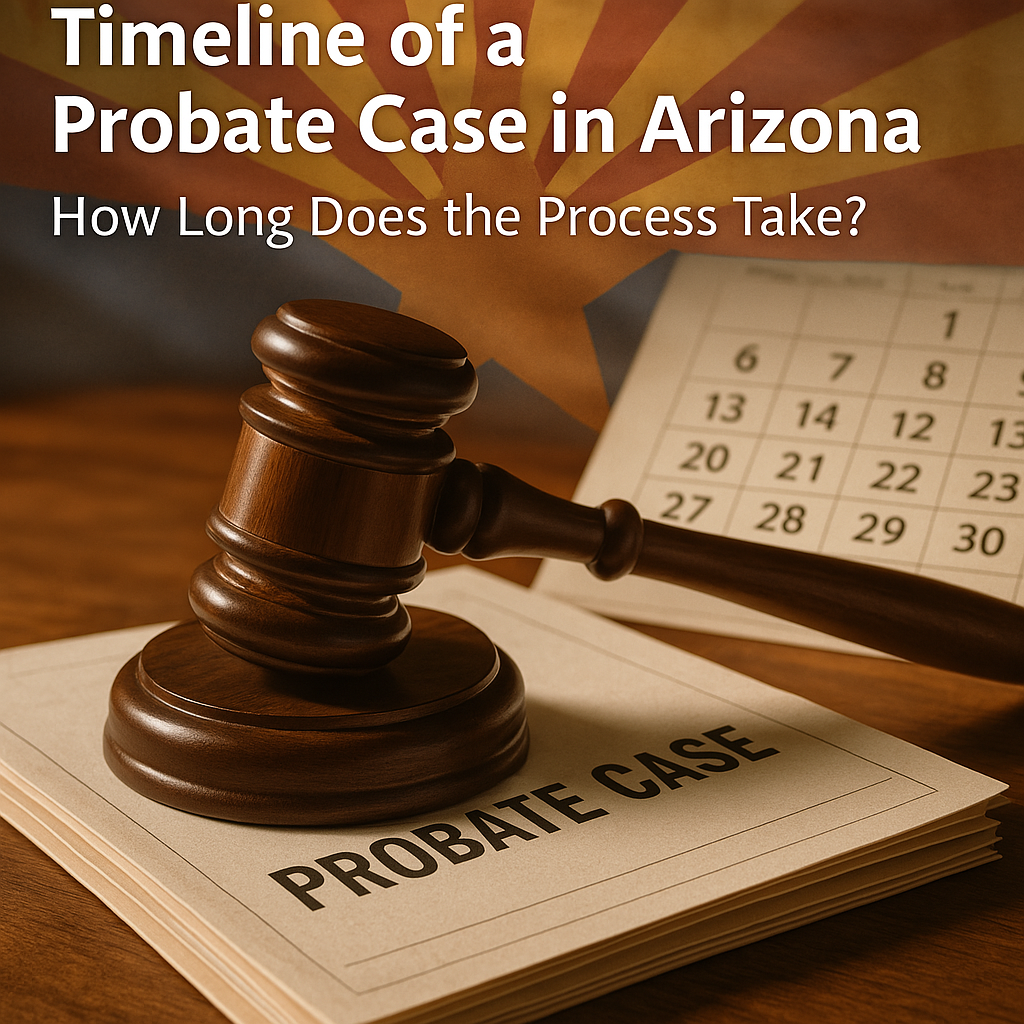
Timeline of a Probate Case in Arizona: How Long Does the Process Take?
When a loved one passes away, navigating the legal process of probate can feel overwhelming—especially when you're unsure how long it will take. In Arizona, the probate timeline varies depending on the complexity of the estate, whether the process is formal or informal, and how quickly required documents are filed and approved. This guide breaks down the typical stages of probate in Arizona and what you can expect at each step.
What Is Probate?
Probate is the legal process of administering a deceased person’s estate. It involves validating the will (if there is one), appointing a personal representative (also known as an executor), identifying and inventorying assets, paying debts and taxes, and distributing the remaining property to heirs or beneficiaries.
Informal vs. Formal Probate in Arizona
Informal Probate: Used when there is no dispute about the will or heirs. It’s faster, less expensive, and handled primarily through paperwork filed with the probate registrar.
Formal Probate: Required when there are disputes about the will, heirs, or appointment of the personal representative. This process involves court hearings and can take significantly longer.
Key Timeframes in Arizona Probate
1. Filing the Probate Petition
The process begins when a petition is filed with the Superior Court in the county where the decedent lived. Under Arizona law, probate proceedings must generally be initiated within two years of the decedent’s death. Exceptions apply in cases involving missing persons or previously dismissed proceedings.
2. Appointment of Personal Representative
Once the petition is filed, the court will appoint a personal representative. In informal probate, this can happen within a few weeks. In formal probate, it may take longer due to required hearings.
3. Notice to Creditors
After appointment, the personal representative must notify known creditors and publish a notice in a local newspaper. Creditors have four months from the date of publication to file claims against the estate.
4. Inventory and Appraisal
The personal representative must identify, inventory, and appraise all estate assets. This step can take 1 to 3 months, depending on the complexity of the estate.
5. Paying Debts and Taxes
Before distributing assets, the estate must pay valid debts, taxes, and administrative expenses. This can take several months, especially if tax returns are involved.
6. Distribution of Assets
Once debts are paid and the creditor claim period has passed, the personal representative can distribute the remaining assets to heirs or beneficiaries. This typically occurs 6 to 12 months after the probate process begins.
Total Duration of Probate in Arizona
Type of Probate | Estimated Timeline |
|---|---|
Informal Probate | 6 to 9 months |
Formal Probate | 12 to 24 months |
Factors That Can Delay Probate
Disputes among heirs or beneficiaries
Challenges to the validity of the will
Difficulty locating or valuing assets
Unpaid taxes or unresolved debts
Missing or incomplete documentation
Can Probate Be Avoided?
Yes. Arizona allows for probate avoidance through tools such as:
Revocable living trusts
Beneficiary deeds
Payable-on-death (POD) accounts
Joint tenancy with right of survivorship
Conclusion: Legal Guidance Makes a Difference
Probate in Arizona doesn’t have to be a drawn-out ordeal. With proper planning and legal guidance, many estates can be settled efficiently. If you’re facing probate after the loss of a loved one—or want to plan your estate to avoid it—consulting with an experienced Arizona probate attorney can make all the difference.
Need help navigating probate in Arizona? Contact our office today to schedule a consultation and get the clarity you need during a difficult time.
